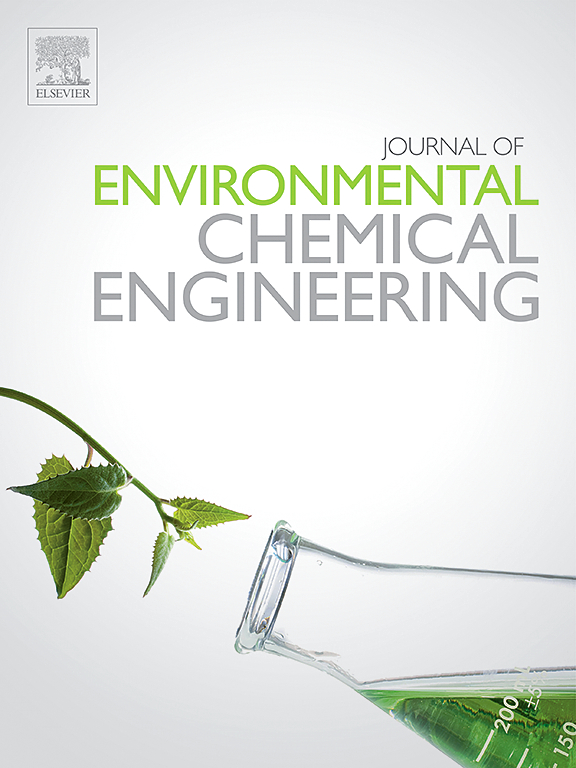A review of circular brine management for supporting sustainable desalination in agricultural irrigation
IF 7.4
2区 工程技术
Q1 ENGINEERING, CHEMICAL
引用次数: 0
Abstract
Water scarcity is a pressing global issue that affects millions of people worldwide. Agricultural irrigation accounts for the largest share of freshwater demand in all countries where agriculture is practiced. The demand for freshwater in industrial processes follows this trend. Developing alternative water sources, or non-conventional sources, is vital to satisfy the rising demand for freshwater to reduce pressure on natural water resources. Desalination is commonly used to meet the demand for drinking water and high-quality industrial process water. Brine is a by-product of desalination processes that is typically discharged back into the receiving body, where it has a devastating effect on the ecosystem. Instead of disposing brine concentrate as a waste stream, it can be applied for beneficial uses such as irrigation of salt-tolerant plants, algae production, aquaculture, fish farming, and other agro-industrial sectors. The main purpose of this review is to evaluate the applicability and feasibility of circular brine management produced from desalination applications, highlighting innovative approaches to sustainable water management strategies, especially in agriculture irrigation. Furthermore, other industrial sectors that consume significant amounts of freshwater is investigated for their possible applications of waste brine. The findings suggest that repurposing brine can alleviate the pressures on freshwater resources and contribute to sustainable agricultural practices. This review specifically provides a future projection regarding the brine issue, representing a substantial barrier in environmental management in desalination practices. The integration of these strategies can enhance resource efficiency, support irrigated agricultural practices, and promote industrial applications that prioritize water conservation.
支持农业灌溉可持续脱盐的循环盐水管理综述
水资源短缺是一个紧迫的全球性问题,影响着全世界数百万人。在所有实行农业的国家,农业灌溉占淡水需求的最大份额。工业过程对淡水的需求遵循这一趋势。开发替代水源或非传统水源对于满足日益增长的淡水需求以减少对自然水资源的压力至关重要。海水淡化通常用于满足饮用水和高质量工业生产用水的需求。盐水是海水淡化过程的副产品,通常会排放回接收体,对生态系统造成破坏性影响。而不是处理浓盐水作为废物流,它可以应用于有益的用途,如灌溉耐盐植物,藻类生产,水产养殖,养鱼,和其他农业工业部门。本综述的主要目的是评估海水淡化应用产生的循环盐水管理的适用性和可行性,重点介绍可持续水管理战略的创新方法,特别是在农业灌溉方面。此外,还研究了消耗大量淡水的其他工业部门对废盐水的可能应用。研究结果表明,重新利用盐水可以减轻淡水资源的压力,并有助于可持续农业实践。这篇综述特别提供了关于盐水问题的未来预测,这是脱盐实践中环境管理的一个重大障碍。这些战略的整合可以提高资源效率,支持灌溉农业做法,并促进优先节约用水的工业应用。
本文章由计算机程序翻译,如有差异,请以英文原文为准。
求助全文
约1分钟内获得全文
求助全文
来源期刊

Journal of Environmental Chemical Engineering
Environmental Science-Pollution
CiteScore
11.40
自引率
6.50%
发文量
2017
审稿时长
27 days
期刊介绍:
The Journal of Environmental Chemical Engineering (JECE) serves as a platform for the dissemination of original and innovative research focusing on the advancement of environmentally-friendly, sustainable technologies. JECE emphasizes the transition towards a carbon-neutral circular economy and a self-sufficient bio-based economy. Topics covered include soil, water, wastewater, and air decontamination; pollution monitoring, prevention, and control; advanced analytics, sensors, impact and risk assessment methodologies in environmental chemical engineering; resource recovery (water, nutrients, materials, energy); industrial ecology; valorization of waste streams; waste management (including e-waste); climate-water-energy-food nexus; novel materials for environmental, chemical, and energy applications; sustainability and environmental safety; water digitalization, water data science, and machine learning; process integration and intensification; recent developments in green chemistry for synthesis, catalysis, and energy; and original research on contaminants of emerging concern, persistent chemicals, and priority substances, including microplastics, nanoplastics, nanomaterials, micropollutants, antimicrobial resistance genes, and emerging pathogens (viruses, bacteria, parasites) of environmental significance.
 求助内容:
求助内容: 应助结果提醒方式:
应助结果提醒方式:


